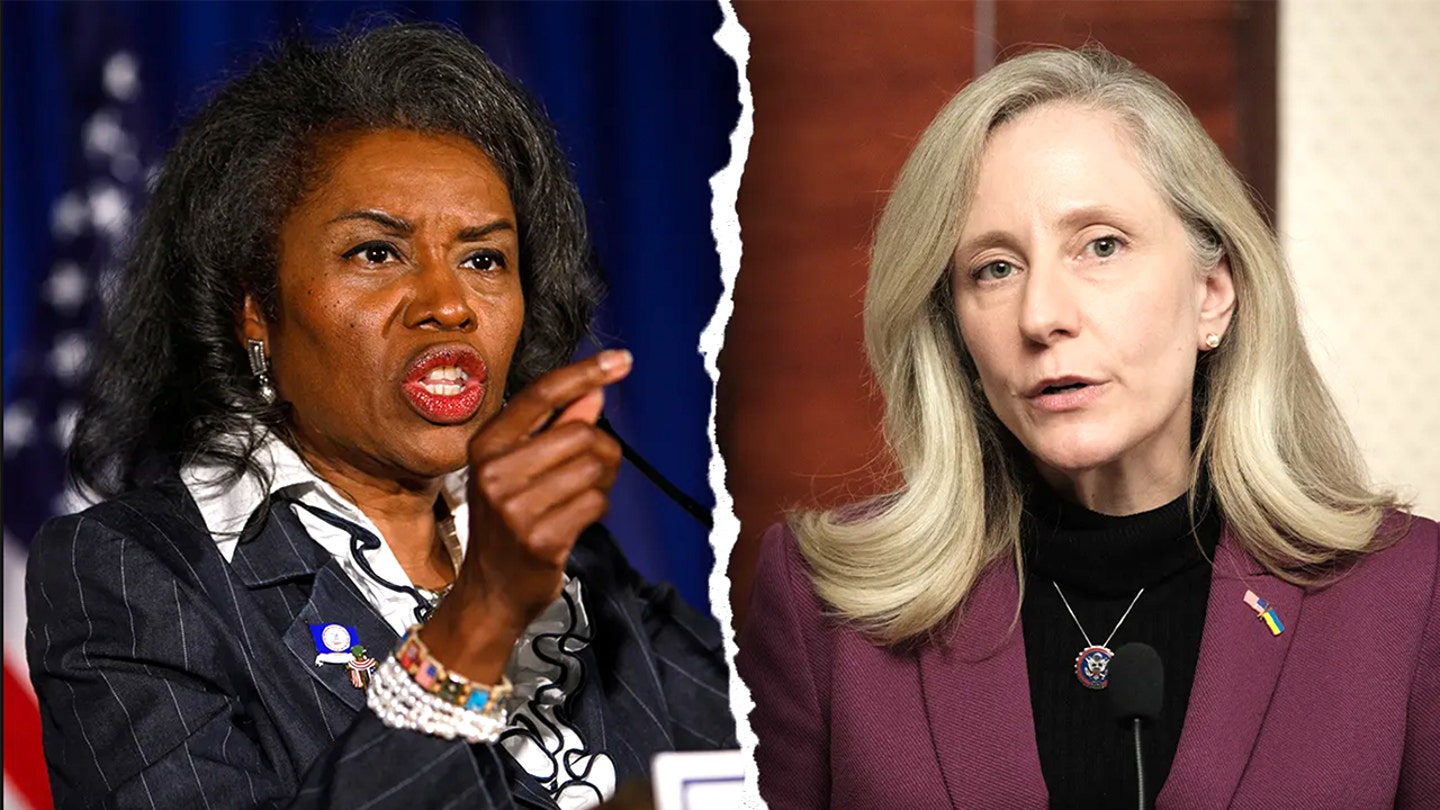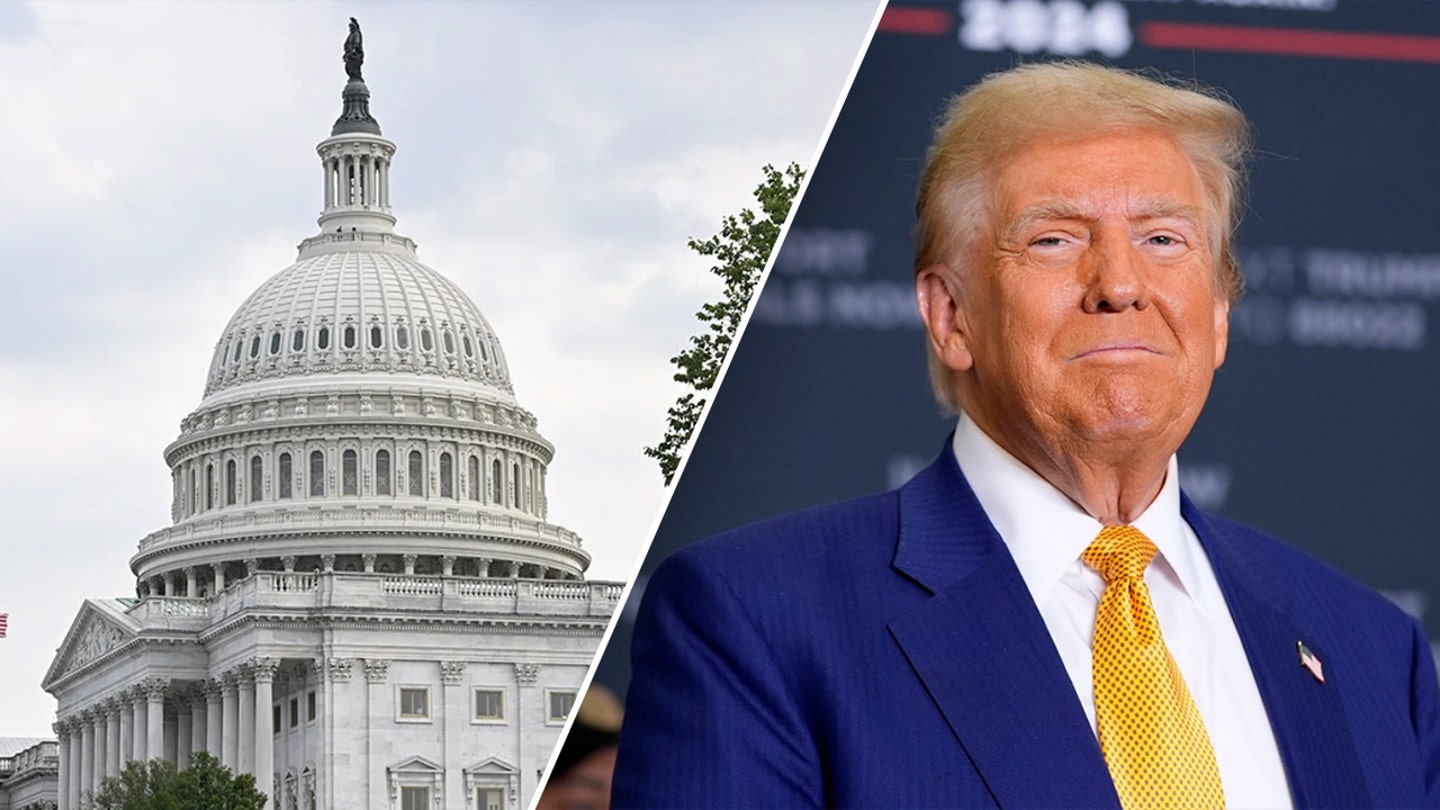
The Democrats go ‘Trump lite’ in latest plan to save democracy
Entities mentioned:
- Democrats: Power, Justice, Self-preservation
- Donald Trump: Power, Revenge, Self-preservation
- Gavin Newsom: Ambition, Competitive spirit, Power
- Barack Obama: Legacy, Influence, Duty
- Republican Party: Power, Control, Self-preservation
Article Assessment:
Credibility Score: 65/100
Bias Rating: 40/100 (Lean Left)
Sentiment Score: 35/100
Authoritarianism Risk: 55/100 (Mixed/Neutral)
Bias Analysis:
The article leans slightly left, focusing more on Democratic perspectives and strategies. While it does present some Republican viewpoints, the overall framing is more sympathetic to Democratic concerns about preserving democracy.
Key metric: Democratic Institutional Strength
As a social scientist, I analyze that this article highlights a significant shift in Democratic strategy in response to perceived threats to democratic institutions. The Democrats' adoption of more aggressive tactics, exemplified by Newsom's redistricting plan, indicates a departure from traditional approaches. This shift poses potential risks to democratic norms but is framed as a necessary response to Republican actions. The involvement of high-profile figures like Obama suggests a growing concern within the party about the effectiveness of conventional methods in preserving democratic institutions. This tactical evolution could have long-term implications for political norms and the stability of democratic processes in the US.

Political activist CJ Pearson says White liberals are starting to fear they're losing 'power' over Blacks
Entities mentioned:
- CJ Pearson: Righteousness, Moral outrage, Influence
- White liberals: Power, Control, Fear
- Winsome Earle-Sears: Determination, Duty, Self-respect
- Abigail Spanberger: Ambition, Self-preservation, Obligation
- Republican Party: Competitive spirit, Power, Influence
- Democratic Party: Power, Control, Self-preservation
Article Assessment:
Credibility Score: 65/100
Bias Rating: 70/100 (Lean Right)
Sentiment Score: 30/100
Authoritarianism Risk: 35/100 (Generally Democratic)
Bias Analysis:
The article leans right, primarily quoting conservative voices and framing liberal actions negatively. While it includes some opposing viewpoints, the overall narrative favors a conservative interpretation of events.
Key metric: Racial Political Alignment
As a social scientist, I analyze that this article highlights growing tensions in racial political alignment, particularly focusing on the perceived shift of Black voters away from the Democratic Party. The controversy surrounding the racist sign at a protest event serves as a focal point for discussing broader issues of race, politics, and voter loyalty. The article suggests a potential realignment of Black voters, which could significantly impact future elections and party strategies. The strong reactions from both conservative and liberal figures underscore the high stakes involved in maintaining or changing traditional voting blocs. This incident also reveals the complexities of intersectional politics, where race and gender identity issues collide in public discourse.

TikTok isn't enough to stop Gen Z from drifting to AOC. Trump must do 3 things next
Entities mentioned:
- President Trump: Power, Influence, Legacy
- Republican Party: Power, Control, Influence
- Alexandria Ocasio-Cortez: Influence, Justice, Ambition
- Zohran Mamdani: Ambition, Influence, Justice
- Kamala Harris: Power, Influence, Ambition
- Gen Z: Freedom, Justice, Security
Article Assessment:
Credibility Score: 55/100
Bias Rating: 75/100 (Lean Right)
Sentiment Score: 65/100
Authoritarianism Risk: 35/100 (Generally Democratic)
Bias Analysis:
The article leans heavily right, presenting a partisan viewpoint favoring Republican strategies. It frames Democratic approaches negatively while portraying Trump's methods as innovative and successful.
Key metric: Youth Voter Engagement and Party Affiliation
As a social scientist, I analyze that this article emphasizes the importance of digital platforms and direct engagement strategies in capturing the Gen Z vote. The author argues that Trump's success with young voters in 2024 was due to embracing new media formats like TikTok and podcasts. The proposed strategies - a White House podcast, campus tours, and active TikTok presence - aim to solidify and expand Republican support among youth. This approach recognizes the shift in media consumption patterns and the desire for authentic, unfiltered communication from political leaders. The article suggests that these tactics could prevent young voters from aligning with more progressive politicians, potentially reshaping long-term political affiliations and voting patterns.

Vance heads to Georgia to tout GOP tax cuts — and take aim at Sen. Jon Ossoff
Entities mentioned:
- JD Vance: Ambition, Influence, Power
- Jon Ossoff: Self-preservation, Justice, Duty
- Will Martin: Loyalty, Competitive spirit, Influence
- Brian Kemp: Self-preservation, Ambition
- Republican Party: Power, Control, Influence
- Democratic Party: Power, Justice, Influence
Article Assessment:
Credibility Score: 70/100
Bias Rating: 55/100 (Center)
Sentiment Score: 45/100
Authoritarianism Risk: 30/100 (Generally Democratic)
Bias Analysis:
The article presents views from both Republican and Democratic sides, attempting to balance perspectives. However, slightly more space is given to Republican messaging, with more detailed explanations of their tax plan.
Key metric: Economic Inequality
As a social scientist, I analyze that this article highlights the ongoing political battle over tax policy and its impact on economic inequality. The GOP's tax law, championed by Vice President Vance, is presented as beneficial for middle-class families, while Democrats, represented by Senator Ossoff, argue it primarily benefits the wealthy. This debate directly affects economic inequality by potentially altering the distribution of wealth through tax policy. The article also underscores the importance of Georgia as a battleground state, with both parties vying for influence over public opinion on economic issues. The contrasting narratives presented by Vance and Ossoff reflect broader ideological differences on taxation and government spending, which have significant implications for economic inequality in the United States.

New Schiff leak claim from whistleblower echoes years of similar accusations
Entities mentioned:
- Adam Schiff: Righteousness, Power, Self-preservation
- Donald Trump: Revenge, Power, Self-preservation
- FBI: Duty, Professional pride, Control
- Kash Patel: Loyalty, Justice, Influence
- White House: Control, Influence, Power
- Democratic Party: Power, Control, Self-preservation
- Republican Party: Power, Control, Revenge
Article Assessment:
Credibility Score: 55/100
Bias Rating: 70/100 (Lean Right)
Sentiment Score: 30/100
Authoritarianism Risk: 45/100 (Mixed/Neutral)
Bias Analysis:
The article leans right, primarily due to its heavy reliance on Fox News sources and the framing of allegations against Schiff. While it includes some counterpoints, the overall tone and selection of quotes favor a conservative perspective.
Key metric: Political Polarization Index
As a social scientist, I analyze that this article highlights the ongoing political polarization in the United States, particularly surrounding the allegations against Senator Adam Schiff. The accusations of leaking classified information, if true, could significantly impact public trust in government institutions and elected officials. The back-and-forth nature of the allegations and denials between political parties further exacerbates the divide. This situation may lead to increased skepticism among the public regarding the integrity of political figures and the intelligence community, potentially affecting voter turnout and overall civic engagement. The establishment of a legal defense fund for Schiff also indicates the escalating nature of political conflicts and the financial resources being allocated to these disputes.

Politics Weekly AmericaIs Trump abandoning his ‘America First’ policy for Ukraine? – podcast
Entities mentioned:
- Donald Trump: Power, Control, Influence
- Republican Party: Control, Power, Competitive spirit
- Democratic Party: Power, Justice, Influence
- Gavin Newsom: Ambition, Competitive spirit, Justice
- Immigration and Customs Enforcement (ICE): Control, Duty, Security
- Marriott: Self-preservation, Professional pride, Obligation
- Volodymyr Zelenskyy: Unity, Determination, Security
Article Assessment:
Credibility Score: 65/100
Bias Rating: 35/100 (Lean Left)
Sentiment Score: 30/100
Authoritarianism Risk: 55/100 (Mixed/Neutral)
Bias Analysis:
The article leans slightly left in its framing, giving more space to criticisms of Republican and Trump administration actions. While it includes diverse topics, the language used tends to cast conservative policies in a more negative light.
Key metric: Electoral Integrity and Voter Participation
As a social scientist, I analyze that this article highlights significant political tensions and policy shifts in the United States, particularly focusing on immigration, redistricting, and foreign policy. The content suggests a potential shift in Trump's 'America First' policy regarding Ukraine, indicating changing dynamics in international relations. Domestically, the article points to Republican efforts to influence electoral processes through redistricting and voting restrictions, which could significantly impact electoral integrity and voter participation. The mention of using hotels for immigrant detention and changes in immigration application reviews suggests a tightening of immigration policies. These developments, combined with the pushback from Democratic leaders and local officials, indicate a highly polarized political landscape that could affect citizen trust in democratic institutions and processes.

Gavin Newsom is owning the MAGAs. How far can he take it?
Entities mentioned:
- Gavin Newsom: Ambition, Competitive spirit, Power
- Democratic Party: Unity, Self-preservation, Power
- Donald Trump: Power, Control, Influence
- Republican Party: Power, Control, Competitive spirit
Article Assessment:
Credibility Score: 70/100
Bias Rating: 40/100 (Lean Left)
Sentiment Score: 55/100
Authoritarianism Risk: 35/100 (Generally Democratic)
Bias Analysis:
The article leans slightly left, focusing more on Democratic perspectives and Newsom's potential. While it includes some criticism of Newsom, it generally frames his actions in a positive light compared to Republican strategies.
Key metric: Political Polarization Index
As a social scientist, I analyze that this article highlights the increasing political polarization in the United States, with Gavin Newsom emerging as a potential counterforce to MAGA rhetoric. The focus on redistricting battles and Newsom's confrontational approach towards Trump and Republicans suggests a deepening divide between the two major parties. This polarization could significantly impact voter engagement and governance effectiveness. Newsom's rising profile within the Democratic Party, despite mixed public opinion, indicates a shift towards more combative political strategies. This trend may further entrench partisan divisions and potentially alienate moderate voters, affecting the overall political landscape and policy-making processes.

Conservative roadmap targets Medicaid, student loans for Trump's 'big, beautiful' sequel
Entities mentioned:
- Economic Policy Innovation Center (EPIC): Influence, Competitive spirit, Righteousness
- Republican Party: Power, Control, Righteousness
- Donald Trump: Legacy, Power, Ambition
- Democratic Party: Justice, Moral outrage, Self-preservation
- Paul Winfree: Influence, Professional pride, Ambition
- Brittany Madni: Professional pride, Influence, Duty
- Mike Johnson: Ambition, Power, Loyalty
Article Assessment:
Credibility Score: 70/100
Bias Rating: 65/100 (Lean Right)
Sentiment Score: 55/100
Authoritarianism Risk: 40/100 (Generally Democratic)
Bias Analysis:
The article leans right due to its primary focus on conservative policy proposals and reliance on conservative sources. While it mentions Democratic opposition, it provides more detailed coverage of Republican perspectives and strategies.
Key metric: Federal Budget Deficit
As a social scientist, I analyze that this article highlights a significant push by conservative groups to influence future Republican policy-making, particularly focusing on fiscal reforms and social conservative priorities. The proposed changes to Medicaid, student loans, and other federal programs could substantially impact the federal budget deficit. The emphasis on using budget reconciliation to achieve these goals suggests a strategy to bypass potential Democratic opposition, which could lead to more partisan policy-making and potentially increase political polarization. The focus on social conservative issues like abortion and transgender rights indicates an attempt to merge fiscal policy with cultural wedge issues, which could further divide the electorate and impact future elections.

Trump’s remarkable statement against states’ rights
Entities mentioned:
- Donald Trump: Power, Control, Self-preservation
- Republican Party: Loyalty, Power, Control
- States: Autonomy, Self-preservation, Duty
- Federal Government: Power, Control, Influence
- Congress: Duty, Power, Control
- Obama Administration: Power, Control, Influence
Article Assessment:
Credibility Score: 75/100
Bias Rating: 35/100 (Lean Left)
Sentiment Score: 30/100
Authoritarianism Risk: 65/100 (Authoritarian Tendencies)
Bias Analysis:
The article leans slightly left, evidenced by its critical tone towards Trump and Republican policies. While it presents factual information, the framing and language choices suggest a skeptical view of Trump's actions and their implications.
Key metric: Democratic Institutions Strength
As a social scientist, I analyze that this article highlights a significant shift in the Republican Party's stance on states' rights, particularly under Trump's leadership. The president's attempt to exert federal control over state election processes contradicts long-standing conservative principles of limited federal government. This shift poses potential risks to the balance of power between state and federal governments, a cornerstone of American democracy. The article suggests that Trump's actions and statements reflect a broader pattern of centralizing power, which could weaken democratic institutions and norms. This trend, if continued, may lead to increased political polarization and erosion of trust in the electoral system.

All Over the Map with John King
Entities mentioned:
- Donald Trump: Power, Influence, Legacy
- Joe Biden: Power, Duty, Legacy
- Kamala Harris: Ambition, Power, Recognition
- Nikki Haley: Ambition, Competitive spirit, Recognition
- Republican Party: Power, Control, Loyalty
- Democratic Party: Power, Unity, Justice
- Voters: Self-preservation, Security, Freedom
Article Assessment:
Credibility Score: 75/100
Bias Rating: 50/100 (Center)
Sentiment Score: 45/100
Authoritarianism Risk: 30/100 (Generally Democratic)
Bias Analysis:
The articles present a balanced view, covering perspectives from both Republican and Democratic voters. While there's slightly more focus on Trump, it's balanced by coverage of Biden, Harris, and other candidates.
Key metric: Voter Sentiment and Electoral Trends
As a social scientist, I analyze that this collection of articles focuses heavily on voter sentiment across various demographics and regions, particularly in battleground states. The articles track shifting opinions, concerns, and motivations of voters over time, especially in response to key political events and policy changes. There's a strong emphasis on the impact of economic policies, immigration, and social issues on voter behavior. The coverage spans multiple election cycles, showing how voter attitudes have evolved. This comprehensive voter analysis is crucial for understanding the complex dynamics of American electoral politics and predicting future voting patterns.
- Read more about All Over the Map with John King
- Log in to post comments